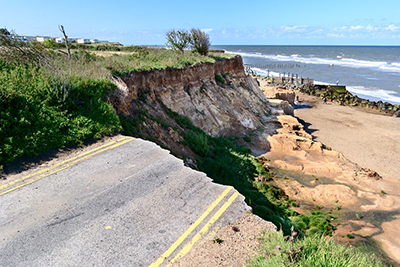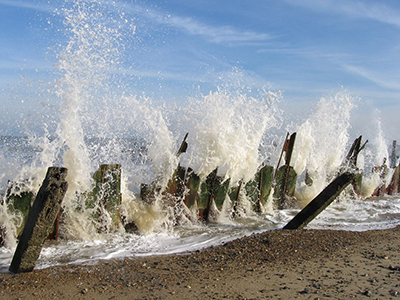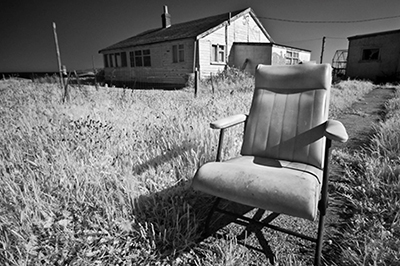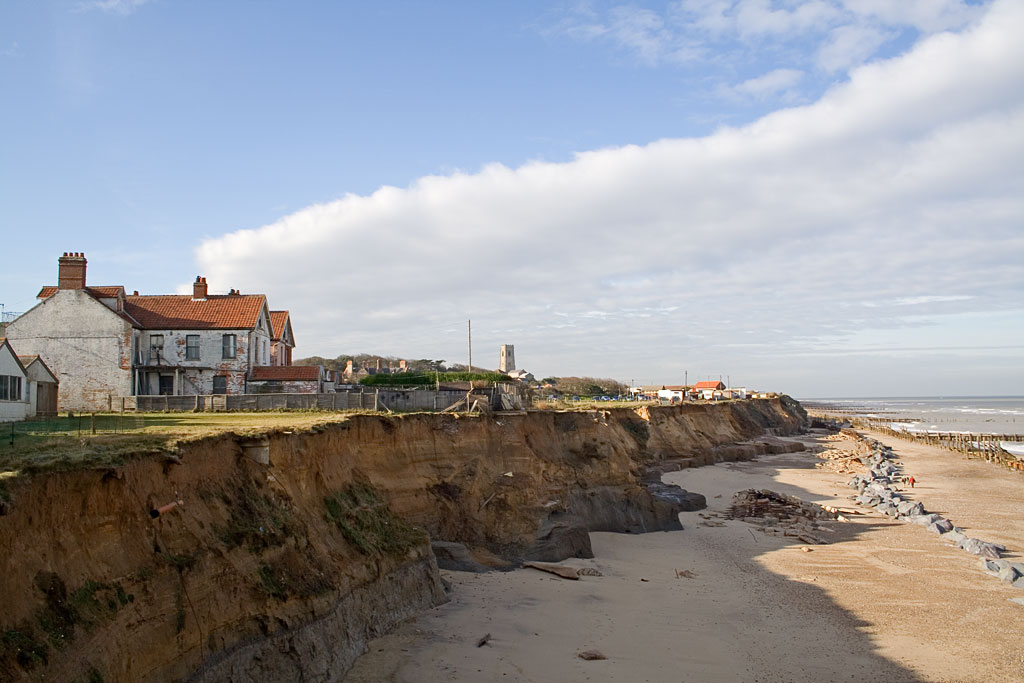 Coastal erosion in Happisburgh
Why is the sea level rising?
Coastal erosion in Happisburgh
Why is the sea level rising?
Global sea-level rise is caused by the melting of ice sheets in Greenland and Antarctica and the expansion of seawater as it heats up (Humphreys, 2019). Over the period 1901-2010 global average sea levels rose 0.19 metres (IPCC, 2013).
Predictions for future sea-level rise vary. The impact on varying levels of sea-level rise in different locations can be explored by looking at this map.
What are the risks of sea-level rise for Happsiburgh?
Happisburgh (pronounced Haze-Burra) is a village in East Anglia and has always been vulnerable to coastal flooding and erosion. Jules Pretty writes that ‘the coast strongly defines this region. Beach, salting, sea wall and marshland’ (Pretty, 2011, cited by Clark, 2013). For Happisburgh residents threats by the sea is nothing new. The village has always been at risk of coastal erosion; over the decades there have been 34 homes lost to the sea (Clark, 2013). However, there has been an accelerating rate of inundation by the sea since the 1970s and the projections for global sea rise and increased storminess will exacerbate the natural erosion.
No-one disputes that this place is under threat by the sea, but there are differences of opinion on what to do about it. There are different values and interests at stake. For local communities such as Happisburgh, the interest is primarily to maintain their community and to protect homes and local infrastructure.
 Beach at Happisburgh
Planning for sea-level rise – different solutions
Beach at Happisburgh
Planning for sea-level rise – different solutions
For government bodies such as the Department of Environment, Food and Rural Affairs (DEFRA) ‘working with nature’ is also seen as an important strategy. Since the mid-1990s DEFRA has been producing Shoreline Management Plans (SMP) for areas of coastline in England and Wales. These are controversial as they sometimes take a strategy of non-intervention. There are three strategies that can be used when managing sea level rise:
- Non-intervention
- Managed retreat
- ‘Holding the line’
The DEFRA plan for Happisburgh is to allow erosion to continue and for the north/south current along the coast to carry sedimentary material to beaches further south of the village (Clark, 2013). DEFRA makes decisions based on economic and environmental impacts and costs. If the cost of ‘holding the line’ i.e. building protections and physical sea defences is not outweighed by economic benefit, then the decisions will be based on ‘managed retreat’ or ‘non-intervention’. Non-intervention is not the policy the local community wants (CCAG, 2019).
 Coastal erosion in Happisburgh
Coastal erosion in Happisburgh
The effects of sea-level rise in places such as Happisburgh are emotional and social as well as environmental and the local population see their whole way of life as undervalued. The different values and standpoints of different groups result in conflict over what should be done for Happisburgh for future generations.
In Happisburgh the local action group: Coastal Concern Action Group (CCAG) have described the policy of ‘non-intervention’ as unfair as communities south of the village will gain better beaches, but they will own worthless properties and might lose their homes (CCAG, 2019). Climate change has an unequal distribution of negative effects globally and nationally, but also there is an inequality of response to that change i.e. there are winners and losers. Some communities will be protected, and others will not.
To make matters more controversial for Happisburgh, government plans which affect their community also change. In the past Happisbsurgh was deemed worthy of protection and residents bought houses and made plans on that basis. The 2003 change in policy, from 'hold the line' to 'managed retreat', resulted in properties becoming worthless and people feeling let down (Clark, 2013). Who has the power to make the decisions is a political issue. Examples from across the world show that it tends to be communities who are poorer and who have little political leverage who are likely to suffer more from environmental threats (Humphreys, 2019).
 Happisburgh
Happisburgh
The future?
Happisburgh is working hard to get its voice heard and they are appealing to the values of policymakers by linking their fate with places that are deemed of higher economic value to strengthen their case. The CCAG argues that Great Yarmouth and Norwich could be affected in the future if they are not protected now. Perhaps the economic value placed on small places such as Happisburgh may rise and therefore the policy could change again. The future is uncertain.





Rate and Review
Rate this article
Review this article
Log into OpenLearn to leave reviews and join in the conversation.
Article reviews